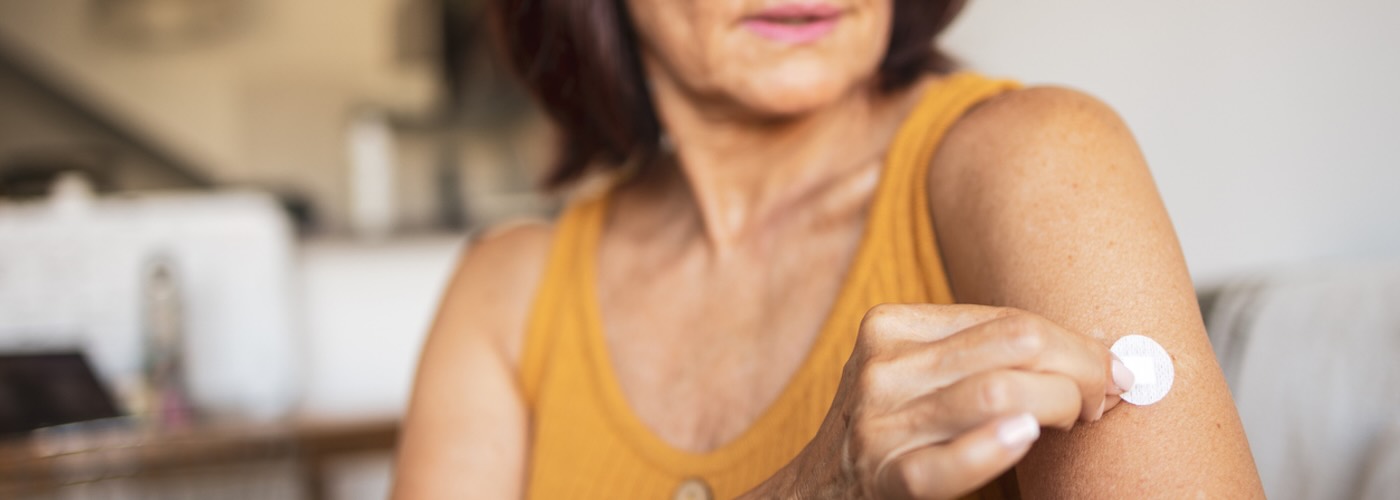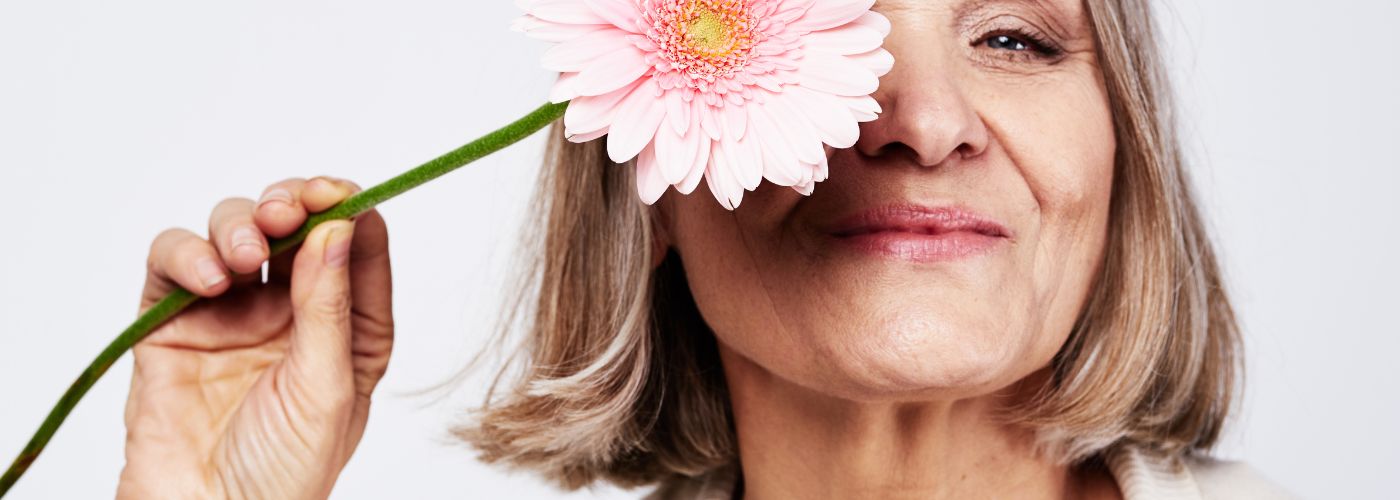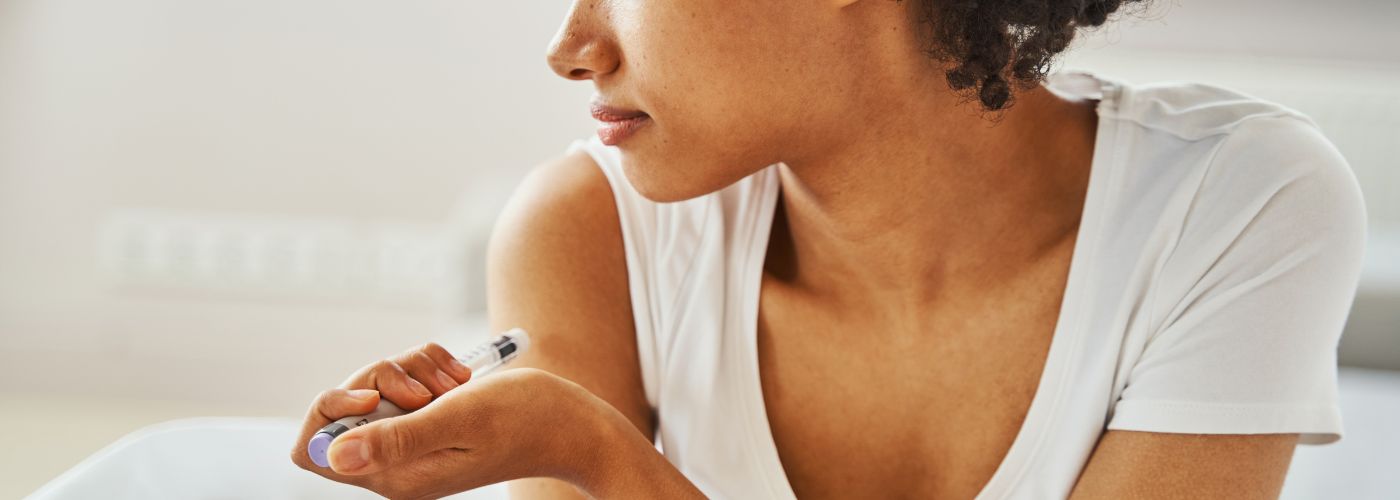
“I’m so nervous about this date. What if, you know, my body doesn’t cooperate when things heat up?”
How many times has a woman over 40 shared similar thoughts? Too many. Vaginal dryness is a valid concern for many women. And it’s not just embarrassing, it hurts. When intimacy shifts from something pleasurable to something she wants to avoid, it can disrupt a woman’s psychology and emotions as well as romantic relationships.
The Chat That Doesn’t Happen
Many women feel embarrassed talking about not-so-sexy vaginal concerns like pain during sex and dryness. Despite the significant impact on a woman’s quality of life, conversations about vaginal dryness are often avoided. It gets pushed aside, dismissed as “just part of getting older,” or buried under layers of embarrassment and discomfort.
Nearly a third of women don’t even tell their partners when they first experience vaginal discomfort.¹ That reluctance to speak openly about it has tangible effects on one’s relationships and overall sexual health – painful intercourse remains the most commonly cited reason for women distancing themselves from “getting close.” Women report having sex less often, finding intimacy less satisfying, and even postponing sexual encounters altogether due to discomfort. The same study surprisingly found that male partners often want to know what’s going on – over four out of five express a wish for their partners to share with them. In fact, the men also reported being slightly more comfortable talking about vaginal discomfort than the women themselves.¹
If you can’t tell your partner, you can at least tell your doctor, right? Not always. In a recent study of over 2,000 adults, more than 30% of participants admitted to having left concerns unspoken during a medical visit due to embarrassment or fear of being judged. Among the top concerns kept quiet? Sexual health issues.2 Nearly half of those surveyed said that reassurance from the practitioner would have helped them open up, and 78% said they would’ve felt more comfortable if the doctor had brought up the topic first. That gap between needing care and asking for it is clear in one woman’s story.
Shared on a breast cancer support forum after going through chemotherapy and early menopause, she found intercourse painful due to vaginal dryness. When she finally mustered the courage to tell her oncologist, they were able to make a topical recommendation along with an additional oral medication switch. When she went to fill the prescription, only the oral medication was included. She described feeling devastated, unwilling to go through the conversation again, and walked away without the cream, feeling too embarrassed to speak up a second time.
Vaginal dryness can make sex extremely unpleasurable, and in some cases, it gets so severe that even walking or sitting becomes uncomfortable. We tend to chalk it up to aging, hormones, stress, or “the way things are now.” Sometimes, it’s just a difficult conversation, and women continue to deal with it silently.
It’s actually helpful (and even empowering) to understand what’s happening physiologically when vaginal dryness occurs. When you know what’s going on inside your body, it can be easier to advocate for the care and relief you deserve.
Understanding Natural Lubrication
Vaginal dryness is a physiological shift that often stems from hormonal changes, particularly during and after menopause. It can also be triggered by certain medications, cancer treatments, or medical conditions that affect hormone levels.
Estrogen, a primary sex hormone, keeps the vaginal lining thick, elastic, and capable of producing natural moisture. As estrogen levels decline, the vaginal tissue begins to thin, blood flow decreases, and natural lubrication diminishes. That seems simple enough, but there’s even more going on.
Estrogen supports the production of glycogen, a type of sugar stored in the vaginal cells. Glycogen feeds the good bacteria in the vagina, mainly Lactobacilli, which help maintain a healthy vaginal environment by converting glycogen into lactic acid. This acid helps keep the vaginal environment slightly acidic to protect against infections like bacterial vaginosis and urinary tract infections (UTIs). When estrogen drops, glycogen drops, too. This results in fewer beneficial bacteria, a higher pH level, and increased dryness, irritation, and susceptibility to infections.
Structural changes follow. The tissue under the vaginal surface begins to lose essential proteins, such as collagen and elastin, which are components that give the skin its strength and flexibility, allowing it to remain firm and elastic. At the same time, the tissue becomes denser, making it harder for fluid to move through and keeping the surface naturally lubricated. As a result, the vaginal walls become thin, dry, and more sensitive to friction, often leading to symptoms like burning, itching, or pain.
These changes mark the beginning of vaginal atrophy, a condition in which the vaginal tissue progressively loses its stretch, moisture, and resilience. Vaginal dryness is often one of the first signs, but as atrophy sets in, the discomfort can become more severe and persistent, especially if left untreated.⁴
Vaginal Rejuvenation
More often than not, relief comes from a cocktail of solutions – medication adjustments, vaginal lubrication creams, and non-prescriptive efforts. Vaginal rejuvenation offers a promising addition, or even an alternative, to that set of tools.
Using non-surgical technology, vaginal rejuvenation stimulates collagen production and boosts blood flow in the vaginal and vulvar tissues. This supports improved tissue hydration, elasticity, and resilience, helping to relieve dryness, discomfort, and painful intercourse. Some women also find that treatment reduces recurring vaginal or urinary tract infections and improves urinary control by restoring healthier function to the surrounding tissue.
Although the treatment is often known for tightening the vaginal canal or improving the appearance of the vulva, its real therapeutic value lies in revitalizing the underlying structures that support vaginal health. Sessions are painless, require no downtime, and typically last between 20 and 60 minutes.
If you’ve dealt with vaginal dryness or need a pick-me-up in your sex life, contact our team at Aayla for a consultation.
References:
- Nappi, Rossella E., et al. “The CLOSER (CLarifying Vaginal Atrophy’s Impact on SEx and Relationships) Survey: Implications of Vaginal Discomfort in Postmenopausal Women and in Male Partners.” The Journal of Sexual Medicine, vol. 10, no. 9, Sept. 2013, pp. 2232–2241, https://doi.org/10.1111/jsm.12235.
- Hurtaud, Aline, et al. “Factors Associated with Unvoiced Concerns of Patients Attributed to Embarrassment, Modesty or a Fear of Being Judged.” BMC Primary Care, vol. 26, no. 118, 22 Apr. 2025, https://doi.org/10.1186/s12875-025-02804-
- “Embarrassment of Vaginal Dryness.” Breast Cancer Now Forum, May 2015, forum.breastcancernow.org/t/embarrassment-of-vaginal-dryness/40398.
- Eichler, Susann, et al. “An Effective Non-Hormonal Option with High Tolerability for Mild to Moderate Symptoms of Vaginal Dryness Associated with Menopause.” Maturitas, vol. 185, July 2024, pubmed.ncbi.nlm.nih.gov/38583316/, https://doi.org/10.1016/j.maturitas.2024.107978.












